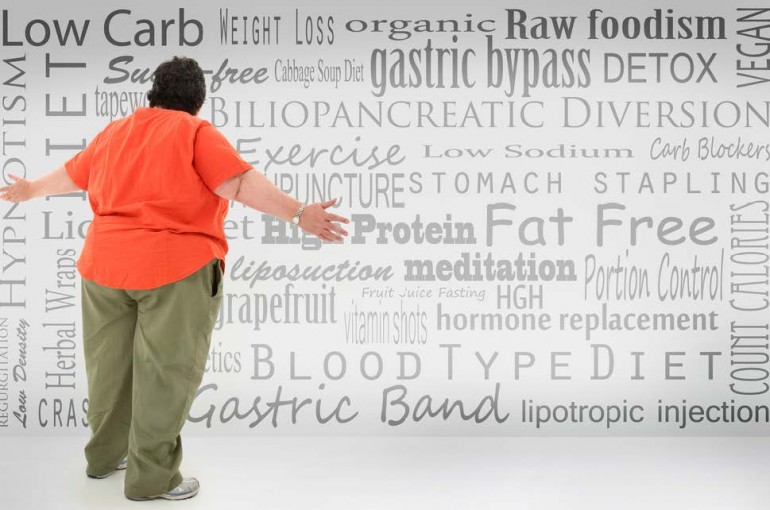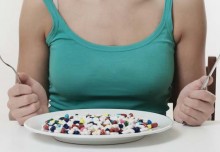
Here are some tips from My Menopause™ Guidebook to help you control your weight.
Menopause is associated with changes in your genes and in your metabolism
My latest book, My Menopause™ Guidebook, guides you into and through menopause. And for many women, menopausal weight gain is a major problem. Here are some tips from My Menopause™ Guidebook to help you control your weight. First, a simple fact about weight gain and aging — menopausal women aren’t older versions of premenopausal women any more than children are younger versions of adults.
Your body functions slightly differently in each stage of life. Menopause and aging in general is associated with changes in both your genes and in your metabolism. In fact, an entire field of medicine is evolving called nutrigenomics which looks at how the food we eat can actually regulate our genes and make us more susceptible to certain diseases, regulate our metabolism and even contribute to obesity and diabetes.
You don’t have to be that old to undergo changes in your metabolism. Your metabolism first starts to slow down during your 30s, not long before perimenopause begins. Those changes cause the percentage of lean muscle in your body to decrease while fat increases.
During your 40s, things continue to change. Your basal metabolic rate drops by 4% to 5% each decade. That’s why any extra pounds get harder to lose. It’s also why it’s increasingly important to eat healthy, control the number of calories you eat and to keep exercising.
By the time you reach menopause in your 50s, your body needs 50 fewer calories each day than it did in your 40s in order to not gain weight. That is why it is so easy for pounds to sneak up on you. If you eat exactly the same number of calories you ate a decade earlier, you will gain weight. If you pack on the calories with larger portions or waste your calories on empty ones like sodas, candy and large desserts, you will increase your belly fat even more. The irony is that if you eat too many empty calories, you gain weight while not getting enough good nutrition.
By menopause, your body needs 50 fewer calories each day than it did in your 40s. Nutrigenomics looks at how food can regulate our genes.
But weight gain is not inevitable, and you are not helpless. Here are my 7 tips to help you control your weight and optimize your health as you enter menopause and beyond:
1. Drink more water and eliminate soda or sweetened beverages, especially those with high fructose corn syrup
2. Avoid junk food and processed foods (packaged in boxes, cans or bags)
3. Eat more whole grains, nuts, fresh fruits and vegetables and half or less the amount of bread
4. Cook more at home and eat less restaurant food (less salt, less fat, less calories)
5. Walk at least 30 minutes daily either all at once or in segments
6. Fill your plate once and avoid seconds — even too much of good, healthy food is bad for you
7. Get a minimum of 7 hours of sleep each night – too little sleep reduces the hormone leptin that lets you know you are full and increases production of ghrelin, a hormone that makes you think you are hungry
Processed foods, the kinds that come in bags, cans or boxes, drive up insulin levels in your bloodstream and that causes fat to be deposited around your middle. Sodas have a very effective way of getting you fatter: high fructose corn syrup (HFCS). The glucose and fructose in HFCS (also known a as corn sugar) is absorbed much faster from your intestines than natural sugars found in fruits and vegetables. That rapid spike in blood sugar causes your pancreas to secrete even higher levels of insulin. Higher insulin levels contribute to the development of obesity and eventually, diabetes.
Your 60s continue the same pattern with most of the added weight ending up in your abdomen. Increasing belly fat not only affects the way you look and feel; it adds to the risk of high blood pressure and diabetes. That’s why it’s really important during this decadeto keep exercising.
I do weight training twice a week and go for a walk almost every day. I encourage you to as well.
Try to take 10,000 steps every day. It both helps to fight off medical risks by burning off unwanted calories and it keeps up your muscle strength and tone. It also helps with balance, which reduces the risk of falls. Another benefit of exercise is it really helps to lower your stress and improve your mood.
By the seventh decade, loss of muscle strength and tone and loss of bone density are common. Some of this loss is due to a decrease in dietary intake or a loss in appetite. Stomach acid also gets more alkaline and that makes it harder to absorb calcium and certain vitamins that require a lower pH to be absorbed.





